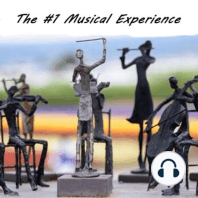16 min listen

Handel - Messiah - London Philharmonic (Full Concerto)
Handel - Messiah - London Philharmonic (Full Concerto)
ratings:
Length:
144 minutes
Released:
Jul 1, 2021
Format:
Podcast episode
Description
George Frideric (or Frederick) Handel baptised Georg Friederich Händel,; 23 February 1685 – 14 April 1759 was a German-born Baroque composer becoming well known for his operas, oratorios, anthems, concerti grossi, and organ concertos. Handel received his training in Halle and worked as a composer in Hamburg and Italy before settling in London in 1712, where he spent the bulk of his career and became a naturalised British subject in 1727. He was strongly influenced both by the middle-German polyphonic choral tradition and by composers of the Italian Baroque.Handel started three commercial opera companies to supply the English nobility with Italian opera. In 1737 he had a physical breakdown, changed direction creatively, and addressed the middle class and made a transition to English choral works. After his success with Messiah (1742), he never composed an Italian opera again. His orchestral Water Music and Music for the Royal Fireworks remain steadfastly popular.[6] Almost blind, he died in 1759, a respected and rich man, and was given a state funeral at Westminster Abbey.Handel composed more than forty opera serias over a period of more than thirty years. Since the late 1960s, interest in Handel's music has grown. The musicologist Winton Dean wrote that "Handel was not only a great composer; he was a dramatic genius of the first order." His music exerted a strong influence on Classical-era composers, including Mozart and Beethoven. Get bonus content on Patreon Hosted on Acast. See acast.com/privacy for more information.
Released:
Jul 1, 2021
Format:
Podcast episode
Titles in the series (100)
Beethoven Symphony no. 5 in Cm, Op. 67 - III. Allegro attacca: Why We Should Expose Our Kids To Classical Music https://ourtownlive.net #herbw79The Symphony No. 5 in C minor of Ludwig van Beethoven, Op. 67, was written between 1804 and 1808. It is one of the best-known compositions in classical music and one... by The #1 Musical Experience